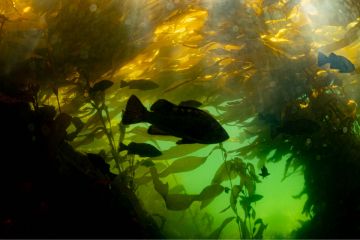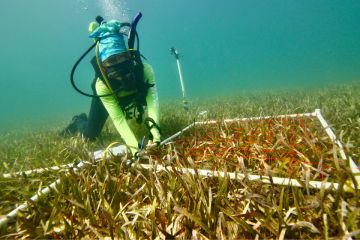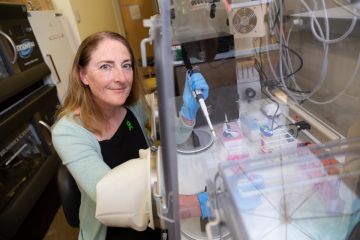Shared resources shape grad’s research
- Tara Sharpe

“Personal success is not personal,” says Blaise Bazuik, who will graduate this month with a BA Honours in Women’s Studies and speaks with enthusiasm about the support she has received from both the women’s studies community and the on-campus Indigenous community. She credits them for her academic and personal success.
And Bazuik has every intention of extending her vision of accomplishment to the future success of UVic. In fact, don’t be surprised in the future to find Bazuik in a top role in UVic administration.
She is starting first in her current position as assistant to the director in UVic’s Office of Indigenous Affairs and hopes to enroll in the Master of Public Administration program next.
“I believe Indigenous students have the right to the highest quality post-secondary education,” she says. “I want to be a part of the processes to make UVic even better for Indigenous students by providing more culturally specific programs and resources.”
UVic came very close to not benefiting from Bazuik’s presence, however. In 2010, Bazuik made up her mind to study sociology at McGill, but adds, “I’m a bit of a ‘sucker’ for signs” and after attending a guest lecture and film screening of Keepers of the Fire by award-winning filmmaker and UVic faculty member Christine Welsh—whose documentary Finding Dawn won the Audience Gold Award at the 2006 Amnesty International Film Festival and had been screened in New York at the 51st session of the UN Commission on the Status of Women—Bazuik completely changed her mind. She decided within the week to study at UVic instead.
“When I heard Christine Welsh speak, I was introduced to the discourses of Indigenous feminism that changed my life from that day on. It was the first time anyone had given me the language or been able to articulate what I wanted to study and contribute to.”
Bazuik’s research objective for her thesis was to “reveal how Indigenous women in Canada create food sovereignty through their diverse relationships with food and community.
“I don’t see my honours thesis as my work. I have a lot of people telling me to own it and take credit for it, but every time I read it I am reminded that I only provided a space for the narratives and work of Indigenous women that existed long before this project was even a thought. All the sources I used and all the women who contributed to the project are the ones who own it. I remain deeply grateful for the experience they gave me and all the meaningful teachings they have shared with me.”
Bazuik was born and raised in Victoria. She has two siblings, and calls herself “an auntie to three boys,” and her parents both live here still. Her father was born in Timmins, Ontario; her mother was also born in Canada, and is first-generation with family roots in Switzerland. Bazuik says they reacted with delight when she told them she would be staying in Victoria.
There isn’t much danger she will be leaving any time soon: “Even when I’m not at UVic, I feel like I’m here. The on-campus Indigenous community is where the majority of people I can identify with are. I have little intention of leaving Victoria.”
“I still have a lot of work to do and have a lot to give. I want to get things done here. I don’t want to say ‘this is the best we can do’ because we can do better. And I want to be a part of that.”
Photos
In this story
Keywords: research, award, women's studies, Indigenous
People: Blaise Bazuik





